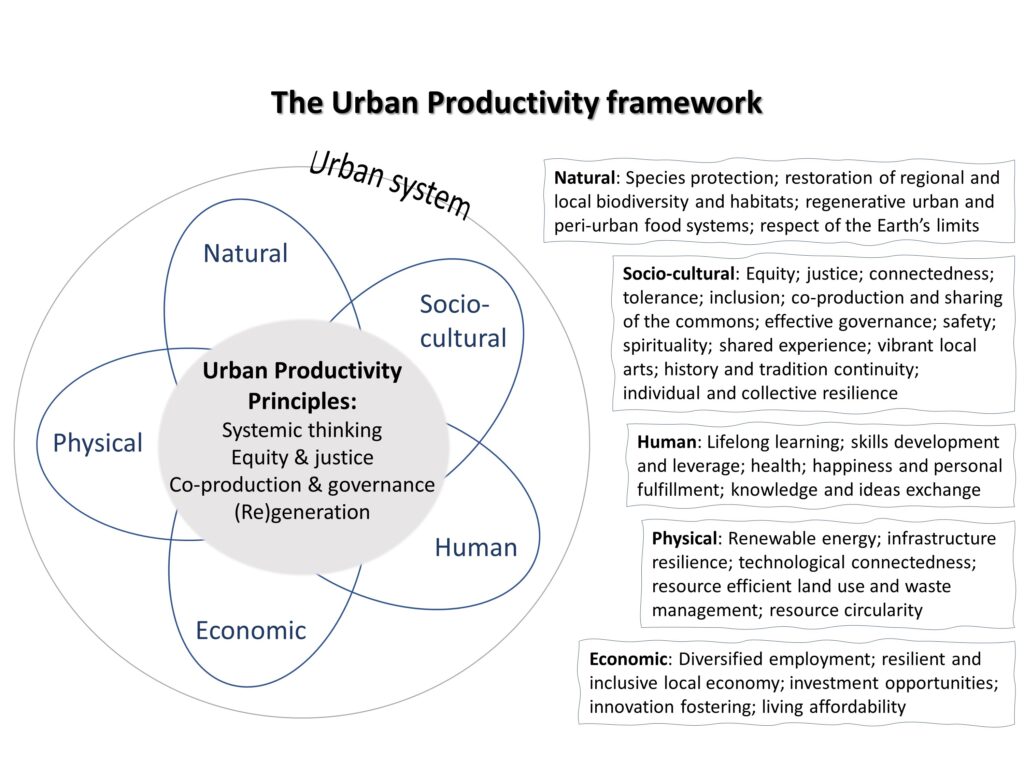Just published in Discover Sustainability – access full article here (it’s Open Access)!
Abstract
In this “urban century”, planetary realities and increased environmental and social awareness have led to significant international agreements and the recognition that local communities play a crucial role in successfully implementing long-term sustainability goals. Through two case studies in British Columbia, Canada, this research focused on how the concept, principles, and practices of holistic urban productivity can help address urban sustainability planning, implementation, and assessment processes. The research findings showed a range of challenges in urban sustainability such as the persistence on utilitarian approaches to resource management and community planning, the prioritization of short-term policies, a general resistance to systemic thinking, and various shortfalls in municipal capacity. These obstacles reflected the reality and complexity of urban sustainability processes and highlighted the need to redesign current decision-making. Addressing issues that transcend humanmade borders requires new configurations, non-hierarchical decision-making processes, and using local knowledge as a key guiding tool. Our recommendation is that cities embrace systems thinking in sustainability planning and implementation by focusing more on holistic evaluation of policy impact and finding synergies among policies and stakeholders in all sectors.
Keywords
Urban sustainability, Sustainable cities, Systems thinking, Sustainability assessment, Sustainability frameworks, Sustainable communities


















